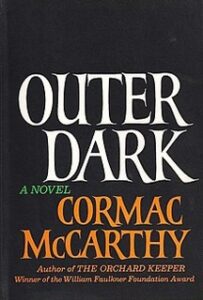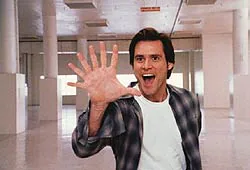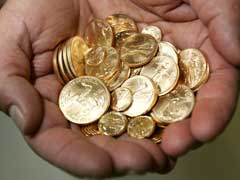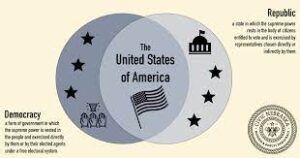More About Statins…
I don’t think there’s anything I’ve written in recent years that has generated a bigger response from readers of this blog than my posts on statin drugs. A few friends who’ve been taking statins for years without symptoms have intimated that they think I’m loco. But the vast majority of responses I’ve received from readers that don’t know me have been supportive.
I’ve posted some of them already. But they keep coming in.
Some share their own stories:
“By now, you probably have more feedback than you need, but I wanted to share my personal experience.
“[Like you] I had the exhaustion side effects with statins. I also developed excruciating pain, first in one shoulder and eventually in both. If I lifted my arm or reached for something in the wrong way I was paralyzed (yes, paralyzed!) by pain that would drop me to my knees. Yes, I would fall down. [When I stopped taking statins,] it took two weeks for the pain to begin to subside! After 90 days, I was 100% pain free and my range of motion was completely normal.
“Before I went bare, my doctor had tried ALL the name brands & generics. He had recommended niacin as a natural replacement for statins, but the dosage required was so high I just went bare.” – TM
“Just want to drop you a note of thanks for your statin research materials. I too have had negative effects of various statins and have decided to no longer use them. Thanks for doing the thorough research for me.” – KW
Some want to share information they’ve gathered from their own research:
“In case you have not seen this in your research, here’s another video from Dr. Maryanne Demasi (‘Statin Wars: Have we been misled by the evidence?’).
“Here’s a more recent article from Demasi (‘New analysis shows statins have minimal benefits’).
“And here’s an article showing that we actually need high cholesterol as we age. The idea that some arbitrary figure is the correct level for all seven billion of us is nonsense.” – KI
Some have suggestions for non-statin alternatives:
“It is true, statins will not extend your life according to the stats. The primary beneficiaries of the drugs have been the pharmaceutical companies. I’ve been following this issue for decades. Cholesterol numbers are a minefield. Arguably more important [than LDL and HDL] are your triglyceride numbers. If you want to have those numbers plummet, take… a large daily intake of pharmaceutical grade omega-3 twice a day to maintain blood serum levels. In addition to massively lowering triglyceride numbers, it helps with cholesterol, heart, eye health, brain function, hair and skin, and not in a small way…. If you find the need to continue with a statin, at least go the natural route and use red yeast rice.” – GM
“About 20 years ago, my physician recommended I start taking statins based on my lipid panel, which showed total cholesterol 40 points above the normal amount recommended. When I asked him how much longer I would live if I took them, he said he had no idea. I did some investigating and discovered the only positive results for longevity and cognitive ability were with the reduction of triglycerides, and taking omega-3 fish oil was proven to reduce them. I have been taking prescription icosapent ethyl ever since, and although my total cholesterol is still 10 points above range, my triglycerides are around 50, which is 100 points below the high range. – KK
“Try taking CoQ10 along with your statin. It’s been shown to mitigate the side effects of statins.” – BI
And some just want to offer moral support:
“I was really sorry to read about your struggles with statins. They have a very poor reputation in the UK for side effects as well.” – DG
Given the response, I’m continuing to research the pros and cons. Let me know if you discover something – a scientific study (but not meaningless “expert” statement) – that contradicts or confirms what I’ve been saying.
More About Ivermectin – and What We Got Wrong…
One of the reasons I’ve been writing these reports on what “we” (the US government and the mainstream media) got wrong since the outbreak of COVID three years ago is that I could see that, from the beginning, so many of the “facts” about the virus and how it should be dealt with made no sense. And yet, because of the political nature of COVID, any rational discussion about it was impossible. Virtually everything – from the virus’s place of origin to its infectiousness to its lethality and to everything proposed to deal with it – became a symbol for one’s political perspective.
It was insane. It still is.
The last time I wrote about this topic, it was about ivermectin. How, after Trump mentioned it as a possible remedy, the CDC, the Biden administration, and the mainstream press went after it, arguing that the drug was useless and dangerous, and that anyone that said otherwise was a purveyor of fake news.
Flash-forward two-plus years. Everyone, except for a handful of people that have been isolated somewhere, knows that ivermectin has been proven to be both safe and effective. And not just against the pathogens it had used for in the past, but also against COVID.
The CDC website has been revised to reflect the present consensus. But they haven’t taken responsibility for the misinformation they’d published for nearly three years. Nor has the government taken responsibility for the assault it launched against doctors that used ivermectin to treat COVID. Now, some of those doctors are suing the government for the damage those attacks did to their practices and their reputations. Take a look here.









